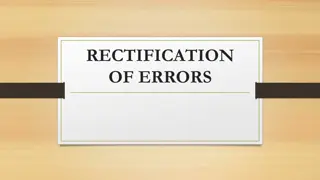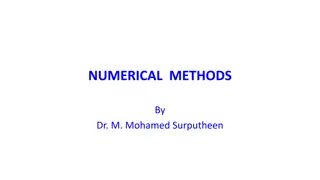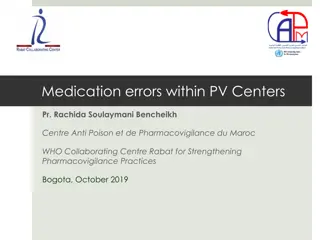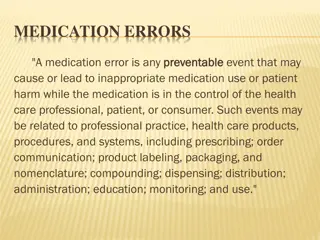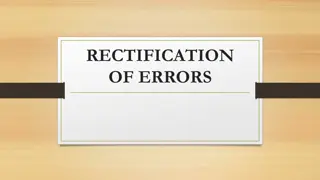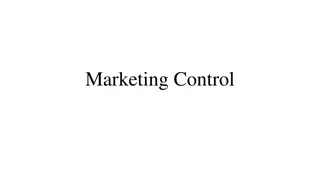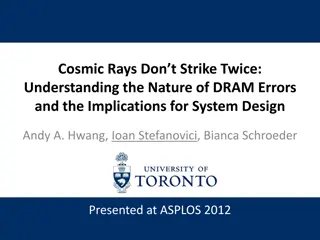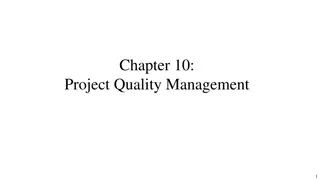Understanding Errors in Quality Control Training
Explore the difference between systematic and random errors in labs, focusing on accuracy and precision. Learn about types of systematic errors such as shifts and trends, their causes, and how they affect the reliability of test systems. Discover the impact of random errors on precision and variability in measurements.
Download Presentation

Please find below an Image/Link to download the presentation.
The content on the website is provided AS IS for your information and personal use only. It may not be sold, licensed, or shared on other websites without obtaining consent from the author. Download presentation by click this link. If you encounter any issues during the download, it is possible that the publisher has removed the file from their server.
E N D
Presentation Transcript
ERRORS (SYSTEMATIC Vs RANDOM) Labs for Life Project QUALITY CONTROL TRAINING
Accuracy and Precision Inaccurate but Precise Inaccurate and Imprecise SD BIAS BIAS Accurate and Precise
Let us examine inaccuracies first. We have looked at the rules that indicate shifting accuracies We have seen that shifting accuracies are denoted by shifting means We have seen that inaccuracies are indicated by bias in the LJ graphs. Before we go to the changes in the analytical system that produces these errors, we have to understand the kinds of systematic errors that can happen
Types of Systematic Errors Shifts Trend
Shift: Systematic Error Shift: Abrupt changes in the control mean a sudden positive or negative change in performance. and dramatic test system
Causes for Shifts: Sudden Changes/ Failures Light Reagent Formulation Major Instrument Maintenance Incubation temperature (enzymes) Room Temperature Failure in the sampling system/reagent dispensing
Trend: Systematic error Trend :gradual loss of reliability in the test system Cause : Deterioration of the instrument light source Gradual accumulation of debris in sample /reagent tubing Aging of reagents Gradual deterioration of control materials Gradual deterioration of incubation chamber temperature(enzymes only) Gradual deterioration of calibration
Random ERROR: Imprecision Precision is the amount of variation in the measurements, a random deviation away from an expected result (computed as Random Error; to be discussed later)
REASONS Improperly mixed /dissolved reagents Air bubbles in reagents and reagents lines, sampling or reagents syringes. Pipette tips is not fitting properly. A clogged pipettor (Clot). Unstable temperature and incubation. Unstable power supply. Poor operator technique. Improper mixing of processed samples. Incorrect reconstitution of the control material.






